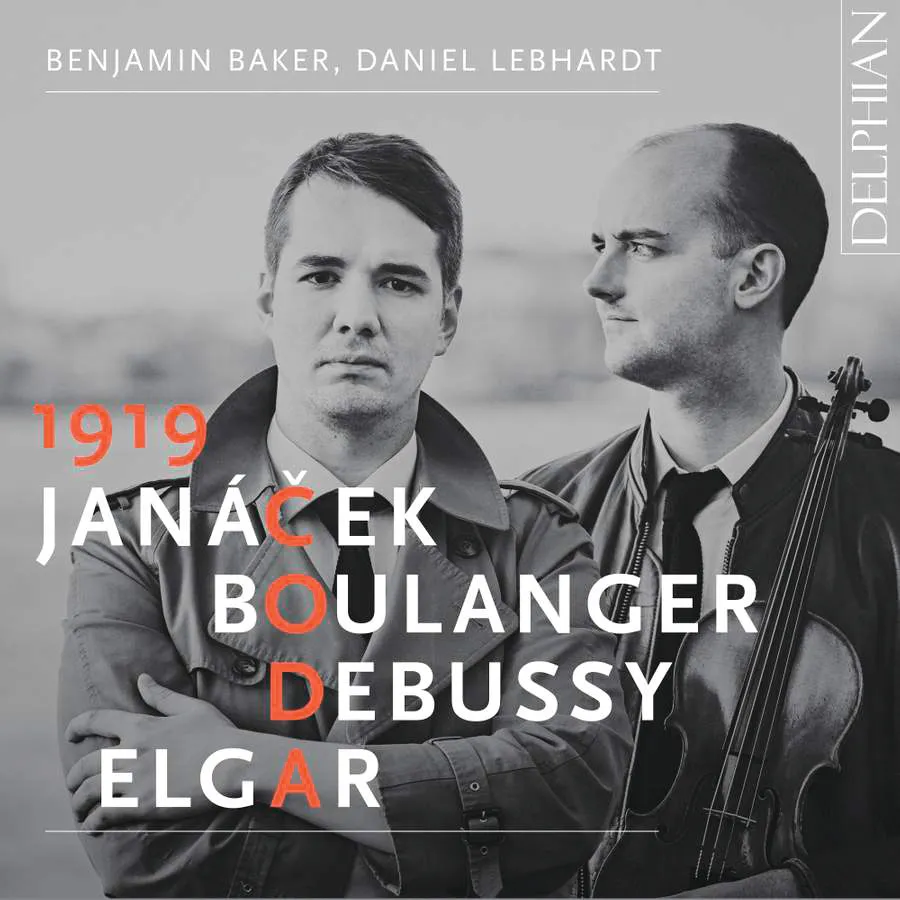
1919 Coda L Boulanger: Nocturne; Cortège; D’un matin de printemps; Debussy: Violin Sonata; Elgar: Violin Sonata, Op. 82; Janáček: Violin Sonata Benjamin Baker (violin), Daniel Lebhardt (piano) Delphian DCD34288 66:48 mins
These three very fine but still underappreciated violin sonatas were composed (at least partly) during World War I; yet the two entirely composed within those years – Debussy’s and Elgar’s – appear to escape the trauma and horror of war. Maybe that explains the title 1919 – the year after the War ended. It also, for certain, avoids confusion with violinist Tamsin Waley-Cohen’s Signum Classics album which programmes those two sonatas under the title 1917.
Janáček’s Sonata, inspired by reports of the Russian army’s early successful advances, more obviously reflects the War. Pianist Daniel Lebhardt is excellent throughout, but violinist Benjamin Baker makes Janáček’s abrupt gestures sound twitchy rather than nervous. David Oistrakh, to name just one alternative violinist, provides a greater sense of emotional coherence in this Sonata’s disparate ideas.
In the Debussy, Baker – judging from his rallentandos which impede the finale’s momentum – places much weight on the composer’s confession that this apparently sunny movement emerged from ‘the shadows of a gloomy brain’. Debussy was, after all, dying from cancer, though it seems unkind to cast so much cloud over the sunshine to which the composer aspired. In any case, Baker’s interpretative details – such as the downward ‘moans’ added to the first movement’s second subject – again seem mannered. Waley-Cohen, if not quite so polished in her technique, brings to this masterpiece a more natural sense of wistful melancholy.
In the Elgar Baker refrains from self-conscious point making, and this, along with Lili Boulanger’s unpretentious and diverting three pieces, receives the most successful performance here.
Daniel Jaffé

